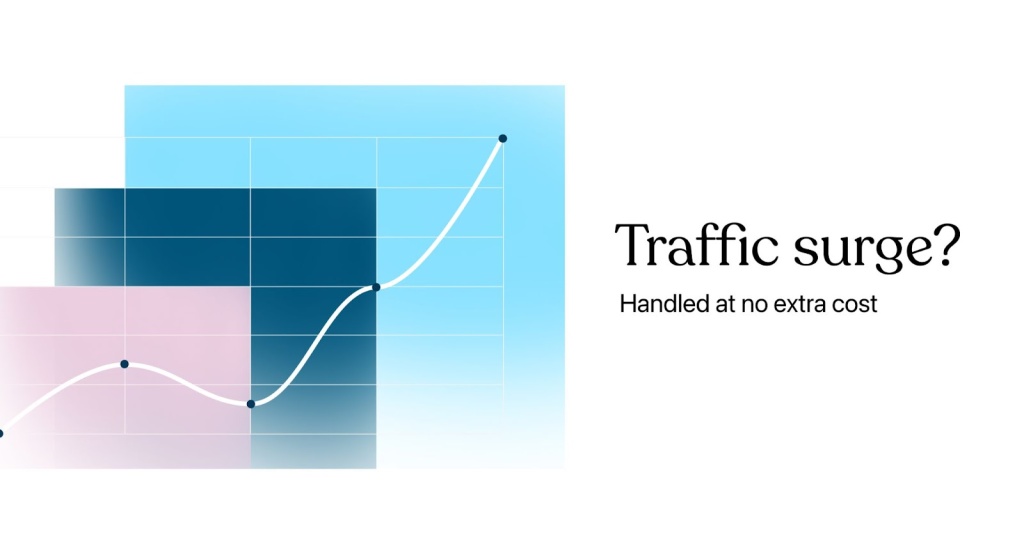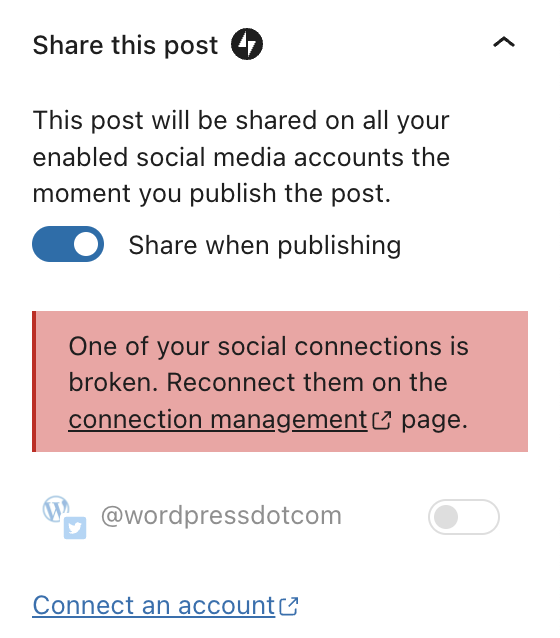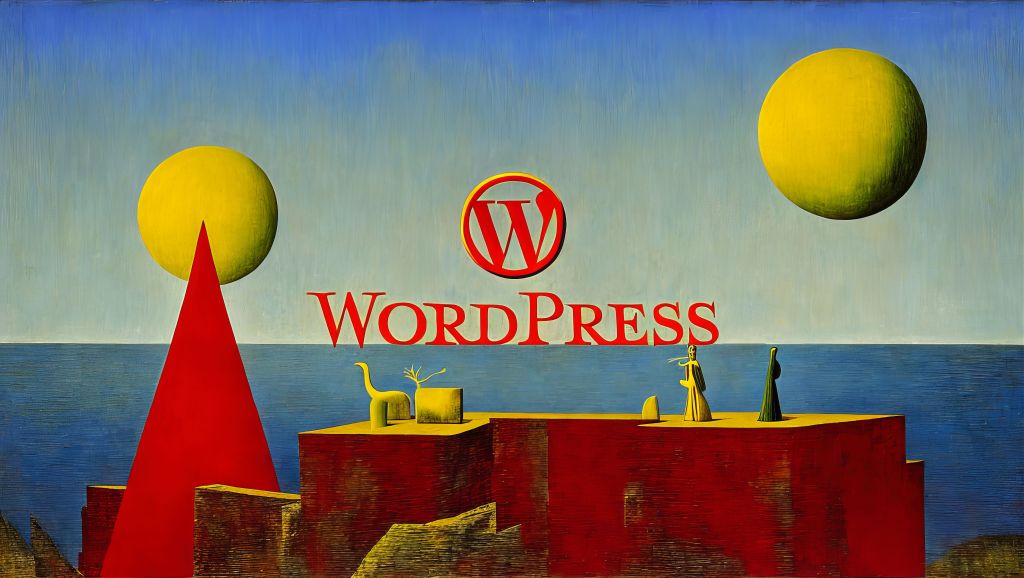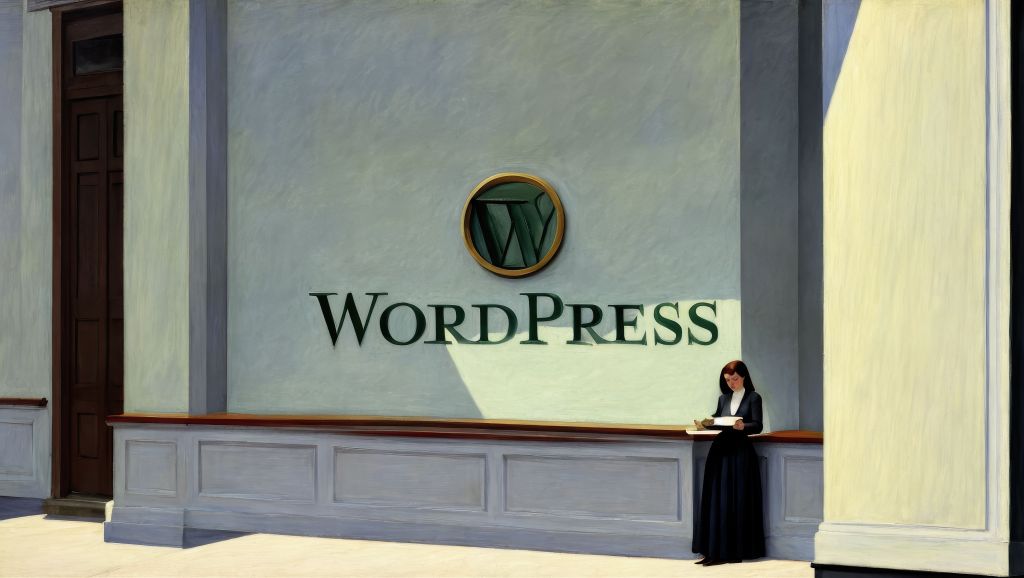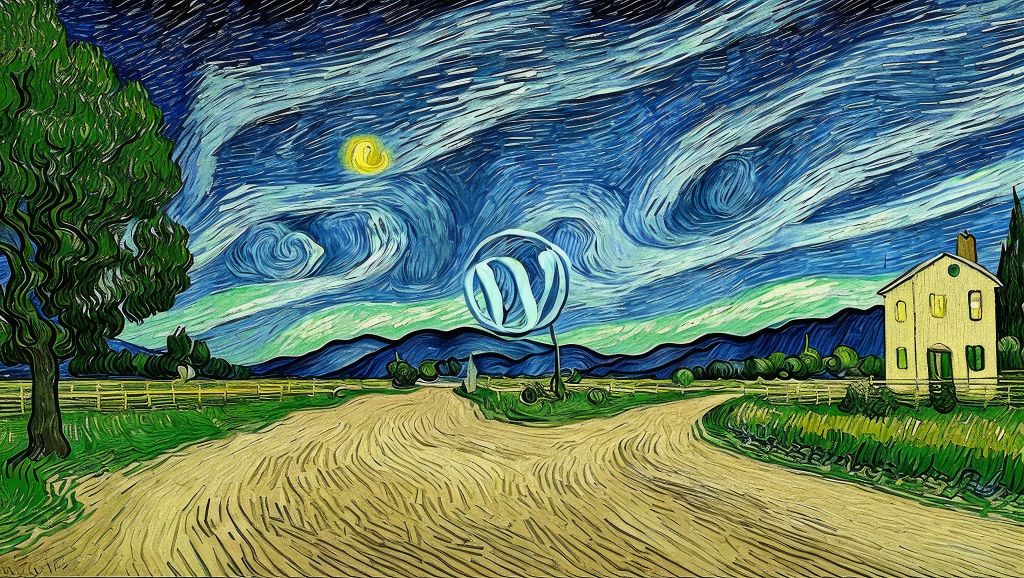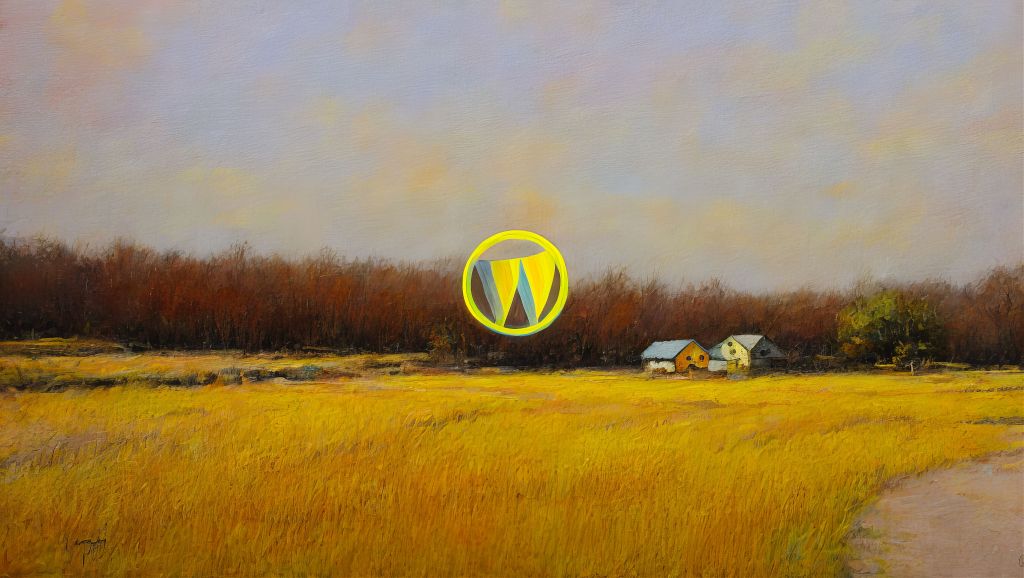On Episode fifty-two of the WordPress Briefing podcast, join WordPress Executive Director Josepha Haden Chomphosy and special guest Héctor Prieto as they discuss phase three and why it’s more than just collaborative editing!
Have a question you’d like answered? You can submit them to wpbriefing@wordpress.org, either written or as a voice recording.
Credits
Editor: Dustin Hartzler
Logo: Javier Arce
Production: Santana Inniss
Song: Fearless First by Kevin MacLeod
Have a question you’d like answered? You can submit them to wpbriefing@wordpress.org, either written or as a voice recording.
Show Notes
Transcript
[Josepha Haden Chomphosy 00:00:00]
Hello everyone, and welcome to the WordPress Briefing, the podcast where you can catch quick explanations of the ideas behind the WordPress open source project, some insight into the community that supports it, and get a small list of big things coming up in the next two weeks. I’m your host, Josepha Haden Chomphosy. Here we go.
[Josepha Haden Chomphosy 00:00:40]
I have with me today Hécto Prieto. You all may know him from the WordPress Slack. He recently was, I believe, a release coordinator, maybe for the last release. Was that for 6.1?
[Héctor Prieto 00:00:51]
Yes. It was for 6.1 and also 6.0, in fact.
[Josepha Haden Chomphosy 00:00:54]
All right. Well, welcome to the WordPress Briefing today. How are you doing?
[Héctor Prieto 00:00:59]
Well, I’m excited to be here. I’m a longtime listener of the podcast since the first episode. So I’m super excited to be here with you today.
[Josepha Haden Chomphosy 00:01:06]
Yes. Longtime listener. First-time caller. All right, well, we’re gonna have a topic that just dumps you right in the soup, as they say in the United States. So we are actually here to talk about phase three of Gutenberg. It’s been a long time coming, and there are a lot of questions that folks have about what’s going into it and what’s not going into it.
And as someone who works really closely with our Gutenberg technical architect, Matías Ventura, I figured you would be exactly the right person to come and talk about your favorite things. From your perspective, what is going to be the biggest enhancement that we start to approach in phase three?
Like which thing, which API is gonna take the most work, do you think?
[Héctor Prieto 00:01:53]
Well, the most work, that’s a very hard question to answer because we are still we are going to start an exploration phase to determine how far we want to go with each of these APIs. So, in general, all these APIs and these products are standalone projects. And some of them are shorter, and some of them are longer.
I would say, in general, the real-time collaboration sounds the most technically challenging because of what it represents and all the changes needed to how we interact with WordPress from async to sync, basically. That would be the hardest part. I think there are also already a few prototypes working, but we need to see how that scales, for example.
[Josepha Haden Chomphosy 00:02:32]
Yeah. So speaking of a few prototypes, I know that there are two or three different prototypes specifically for collaborative editing, but do we have people or groups, working groups in the community that have built any other prototypes? Or is it just kind of first passes at collaborative editing that we’ve seen?
[Héctor Prieto 00:02:52]
Well, apart from Riad Benguella’s exploration, there’s a public repository with that exploration, there are a few plugins trying the same, trying real-time collaboration.
[Josepha Haden Chomphosy 00:03:03]
Yeah, I can think of co-blocks and as blocks, and then I feel like there was a third one.
[Héctor Prieto 00:03:09]
Yeah.
[Josepha Haden Chomphosy 00:03:09]
We’ll find the links to all these
[Héctor Prieto 00:03:12]
Yeah. Let’s add them to the show notes.
[Josepha Haden Chomphosy 00:03:14]
Excellent. So that’s going to be the biggest one. Is there, of the list of APIs, and this is based on the post that Matías sent out last week. If you all haven’t seen that, we’ll put that in the show notes as well. But from the APIs that Matías sort of helped us to identify last week, is there any one that you are particularly excited about for fixing things in WordPress or just generally like an interesting topic of development for you?
[Héctor Prieto 00:03:42]
Well, I would say all of them and how they all play together. But, if I need to pick one of them…
[Josepha Haden Chomphosy 00:03:48]
Everything’s the best!
[Héctor Prieto 00:03:50]
I’ll cheat anyway, and I will going to pick two out of them because they solve issues at different levels. I’m very excited about visual revisions. I think it helps a lot of users, and it affects even non-technical users.
So it’s one of the projects that lower how hard or complex WordPress can be to use sometimes. It’s going to be a huge improvement. It’s going to, I mean, bringing blocks to the revision system. I mean, it’s just a dream come true for me. I’m also going to highlight the search everywhere or quick search feature Matías already opened an issue in the GitHub repository right now.
[Josepha Haden Chomphosy 00:04:28]
Mm-hmm.
[Héctor Prieto 00:04:28]
So the idea for this product is to have a power user shortcut that opens searching, an Alfred-like or Spotlight-like interface for those familiar with MacOS operating systems.
When you can type anything, any place you want to go, or you want to search for any specific text in a document. And it’s supposed to be your power user command tool. So that you can do most things there.
[Josepha Haden Chomphosy 00:04:53]
Oh, and I mean not only power user command tool, but also there are some applications there for folks who have mobility issues, people who are using primarily keyboard as opposed to keyboard and mouse, all that kind of stuff, right?
[Héctor Prieto 00:05:07]
Exactly. And just thinking long term with the rise of AI, it could be possible even to add some natural language processing to this interface so that users could just write in, in plain text, in natural language, what they want to do, and WordPress would provide the action for them.
[Josepha Haden Chomphosy 00:05:23]
Very nice. My two favorites, since you gave two favorites and I can’t just give one at that point, my two favorite projects, which are also probably really, really hard projects, are those explorations around fixing notifications. That is a really big project. And one that I think that, in general, the WordPress project is going to be really excited to have some input on.
And so that’s one that I really will have an eye on. And the other one that I’m going to definitely have my eye on is the media gallery redesign. I realize that this shows, between you and I, that shows our two specific focuses. Because, of course, you work directly with guiding all of our developers. And I am very much like our user advocate. And WordPress “everyman.”
I don’t know if that’s a term that makes sense outside the US. But I do a lot of advocacy for folks who are using WordPress from the user side as opposed to from the developer side because, of course, we have a lot of excellent developers. So y’all don’t need my help with your advocacy.
But yeah, that really shows that you and I have different focuses, which I think is good too.
[Héctor Prieto 00:06:32]
Yes. Also, it’s worth noting that at the end of the day, any improvement we make for developers is so that developers can build better things for users. So, at the end of the day, everything is in the best interest of the users.
[Josepha Haden Chomphosy 00:06:45]
That’s right. That’s definitely a good point. Yeah. So, a final question about this particular thing because we’re trying to keep it a little brief and also because we’ll have a few other podcasts that are specifically about phase three as our explorations get going. Final question here: If you felt like there was one API or one project in particular that could benefit from a lot of community involvement which would you guess that was?
[Héctor Prieto 00:07:20]
I don’t think I can single out any of them. I think getting user feedback is going to be a vital part of this phase, as always. So I would encourage our listeners to just participate in discussions and provide feedback as we start releasing the first prototypes in the Gutenberg plugin. I don’t think I can pick one of them for you, completely honest.
[Josepha Haden Chomphosy 00:07:43]
Yeah. My guess for that is going to be the rework of the dashboard, the admin, WP admin. I think that a lot of people are gonna have a lot to say about what they use it for, what they would like to be able to use it for, how to make it look more modern, how to make it feel more modern. I think that that probably is going to benefit from a lot of early testing and possibly some specific user testing around the concepts of design in there.
And so that’s one that that I think probably is going to take a lot of feedback from the community. And community, in this case, I think, is not only our developers and designers and copy folks who are working to build the CMS, but probably also all of our folks who are extending WordPress, everybody who is working in agencies, things like that.
[Héctor Prieto 00:08:35]
Hmm, well, if I need to pick one, I would say the publishing flows could use also lots of feedback and testing because we are going to implement editorial requirements and customized user flows. And, of course, there are many, many different workflows out there that we might not be able to think of ourselves.
So just imagine the sheer amount of different use cases. There’s going to be, or there currently is with customizations of third-party plugins. So, yeah. I would like to listen to how people would like the publishing flows to be. What are the specific use cases?
[Josepha Haden Chomphosy 00:09:09]
So really, just everything, we need a lot of user feedback on everything.
[Héctor Prieto 00:09:13]
Yes. That’s the summary.
[Josepha Haden Chomphosy 00:09:15]
I don’t think that’s a bad summary. I know that we talk a bit about how WordPress is made better by the activity of our co-creators, the people who are using the software and testing the software, and telling us how it could be better. Those are the groups of people that make sure that we are the best version or headed in the best direction on any of our things with the software.
And so I guess it’s probably not super unusual for everyone to hear like we need your feedback on everything because that’s probably what we do half the time.
[Héctor Prieto 00:09:44]
Yeah, absolutely.
[Josepha Haden Chomphosy 00:09:47]
So the publishing workflows, that reminds me that there has been a little bit of a conversation lately around the naming of this phase, basically.
And I know that the phases don’t necessarily need names. Like that’s why they’re numbered, and that’s a great idea. Like numbers are wonderful ways to reference things, but it also is just easier to reference it in kind of general conversation.
So the first phase was easier editing, and it really focused on the editing experience itself. The second one was customization, and now the third phase has been called collaboration for quite a bit of time.
But as we got closer and closer to this phase and we had more and more conversations that were coming out of phases one and two, it became really clear that really what we’re looking at here is more around workflows. And I love that that is an option for how to refer to this. Probably that’s how I will refer to it for most of the time that I talk about it as we are looking at phase three.
Because I remember that when we were first building the prototypes of Gutenberg, one of the big flags that I had was that breaking changes are not just about what we can see or any sort of visual regressions or what causes the white screen of death. Also, some of the things that are breaking changes should be considered in those workflows when we change where things are or how you accomplish a task.
And our users weren’t ready for it. That is something that is breaking for them, right?
[Héctor Prieto 00:11:25]
Yes. As you mentioned, this phase was referenced as collaboration, real-time collaboration, for a long time, but if we think of how this collaboration looks, it’s much more than just editing at the same time. A very big part of collaboration is also asynchronous collaboration by adding in-line comments and improving these notifications when you have a comment in your draft. I think the power of this phase is how everything comes together. These individual pieces come together.
[Josepha Haden Chomphosy 0:11:51]
Yes, and I don’t know where that first flag that sparked the discussion around, like, okay, but collaborative editing is not quite big enough and also means a bunch of different things for a bunch of different people. It depends on the size of your organization or the type of content you’re writing.
Like, I don’t know where that conversation started. My guess is, you know, some WordCamp somewhere, and an attendee was like, did you, did anybody ever think about these problems? And then they kind of worked their way around the Make Core site or otherwise made their way around to Matias’s ears.
But yeah, I think that was a really smart choice. And you’re exactly right, collaborative editing; that can refer to the synchronous kind or the asynchronous kind, and both of those types of collaboration are equally valuable and probably equally used.
[Héctor Prieto 00:12:40]
Yes. And one important point to note here is that this editorial flows, and this collaboration is crucial to implement multilingualism going into phase four. We need to think that as soon as we have posts and pages in different languages, there are going to be requirements in terms of how to translate these pieces of content.
So this will need collaboration, all forms of collaboration.
[Josepha Haden Chomphosy 00:13:02]
Yeah, absolutely. This maybe was before your time with the project, but I was team multilingual-first for a long time. Or at least thinking that we could do the multilingual part of this work alongside the collaborative editing part of the work. I’ve spent a lot of time trying to understand what we think is going in phase three versus what probably we need to be able to do as far as having native multilingual support in the project.
And I have softened my very hard position on that. You know, we’re big fans of strong positions loosely held, strong opinions loosely held. And this was one of those moments where I had that really strong opinion that we could just do them concurrently. We can do them at the same time.
And I think it was a conversation that you and I were having when you were pointing out the complexities of translating WordPress at all, let alone being able to translate all your content as well. And it makes a lot of sense, and you’re right. I think that there are a lot of interactions, a lot of workflows that we’re gonna have to kind of refresh or redesign or rebuild before it really makes sense for us to help make that a nice streamlined option for multilingual offerings.
[Héctor Prieto 00:14:17]
Yes, absolutely. As a Spanish-speaking person, I’m super excited about having multilingual in Core, but I also understand that we need some tooling ready before implementing multilingual in Core.
[Josepha Haden Chomphosy 00:14:29]
There are no, there really are no easy problems left in WordPress, right? Like, we all agree on this now?
[Héctor Prieto 00:14:36]
That’s correct. And we’re creating something incrementally. If we look at the phases, they are ordered sequentially. But that doesn’t mean that when we start phase three, we are, finishing phase two completely in the same way. We have not finished phase one.
That will be like saying, when is WordPress finished, when is the development finished? So it’s an incremental project, and it’s always going to be to need refining. So it’s of course, multilingual needs to come after collaboration because we need those tools.
But that doesn’t mean we need to finish the collaboration phase or have it very advanced phase three before we can start phase four. That will be determined in the next month as we start explorations.
[Josepha Haden Chomphosy 00:15:17]
So if you all, which I know you are, are interested in better workflows, more streamlined ways of working inside WordPress, and or interested in how we are gonna get multilingual settled in the future, this is a great time to get involved in this project and in the community. Like I said, we’ve got that post up that Matías shipped last week, which, again, if you have not read it, go read it because it’s got excellent, excellent information in there for you.
Héctor, before we head out, is there anything that you wanna make sure that you let the listeners know, either about phase three or just about WordPress in general?
[Héctor Prieto 00:15:57]
Well, tomorrow is WordPress 6.2 release day. So happy 6.2, everybody!
[Josepha Haden Chomphosy 00:16:04]
Happy 6.2. Oh, yeah. Yeah. Which means today is the dry run; probably in three hours, we’re doing the dry run.
[Héctor Prieto 00:16:14]
Depends on when we’re listening to this, but yes.
[Josepha Haden Chomphosy 00:16:18]
Oh, that’s a good point. Right? Not everybody listens to this the second it becomes available. Time zones. That’s right. Oh, man. Look at us being a global project and just pretending like everybody listens to this particular thing the moment that it’s available.
I apologize to everybody who’s listening to it after the release or in the middle of the release party or whatever you’re doing. Regardless, tomorrow, if you’re listening to it today, is the WordPress 6.2 release, and it’s gonna be great.
Well, Héctor, thank you so much for joining me today. I really enjoyed having you on, and thanks for letting me interview you.
[Héctor Prieto 00:16:59]
Thank you for having me. It was my pleasure to be here.
[Josepha Haden Chomphosy 00:17:10]
So that brings us now to our small list of big things, and as is frequently the case, it’s actually kind of a big list of big things. So we’re gonna hop right in here. As Héctor and I mentioned in the episode, the release WordPress 6.2 is coming out tomorrow, depending on when you’re listening to this. If you listen to it on the 27th, it comes out on the 28th of March.
If you have a chance to drop by the release party. I would encourage you to; they’re pretty interesting just to get an idea of everything that it takes to build WordPress. It is, of course, the last few hours before a release, and so you don’t get a full scope.
But it’s always nice to see the way that everybody in the community works together, especially there in that last moment when we’re trying to package something and test it in a bunch of environments all across the world.
[Josepha Haden Chomphosy 00:18:00]
I love attending those. And so I encourage it. The next episode of the WordPress Briefing is going to have the release rundown.
I’ll go through the key features and highlights that finally made it into 6.2. The reason we don’t do those beforehand is just in case we have to remove anything at the last minute from a release. It doesn’t happen too often, but it does happen sometimes. And so, next episode of WP Briefing, that’s what we’ll be talking about.
The next thing on my list is a new developer blog. So there is a brand new developer blog. It was launched last Wednesday. It’s a great resource for WordPress developers to stay up to date and hear the latest in the WordPress development world. And also, we had been hearing some feedback from our developers in recent years that if you are like exploring how to extend WordPress, if you’re in that group of extenders, people who are building themes or building plugins, you’ve kind of feel like you’ve lost a place where you can have those exploratory conversations.
[Josepha Haden Chomphosy 00:19:00]
This is gonna be one of those places. We’ll put a link in the show notes. So far, the content that’s planned, I think, is really interesting.
Next thing on our small list, big list, of big things is WordCamp Europe’s Contributor Day.
So registration for Contributor Day is now open, and it does require a separate registration than regular attendance at WordCamp Europe. So if you are registered for WordCamp Europe, you already have your ticket for that, but you are not registered for Contributor Day, click the link in the show notes and come on down to spend a little time giving back to the WordPress Project.
And the last thing on our list today is that we have a WP20 Wapuu coloring giveaway. So put on your little party hats, and grab your crayons. The 20th anniversary Wapuu coloring giveaway is here. There is an opportunity to color in your own community-driven Wapuu and tweet it to us using #WapuuWP20 for your chance to win a sweet haul of WP20 swag items.
[Josepha Haden Chomphosy 00:20:00]
You can check out the full rules at the link in our show notes.
And that, my friends, is your small list of big things. Thanks for tuning in today for the WordPress Briefing. I’m your host, Josepha Haden Chomphosy, and I’ll see you again in a couple of weeks.




